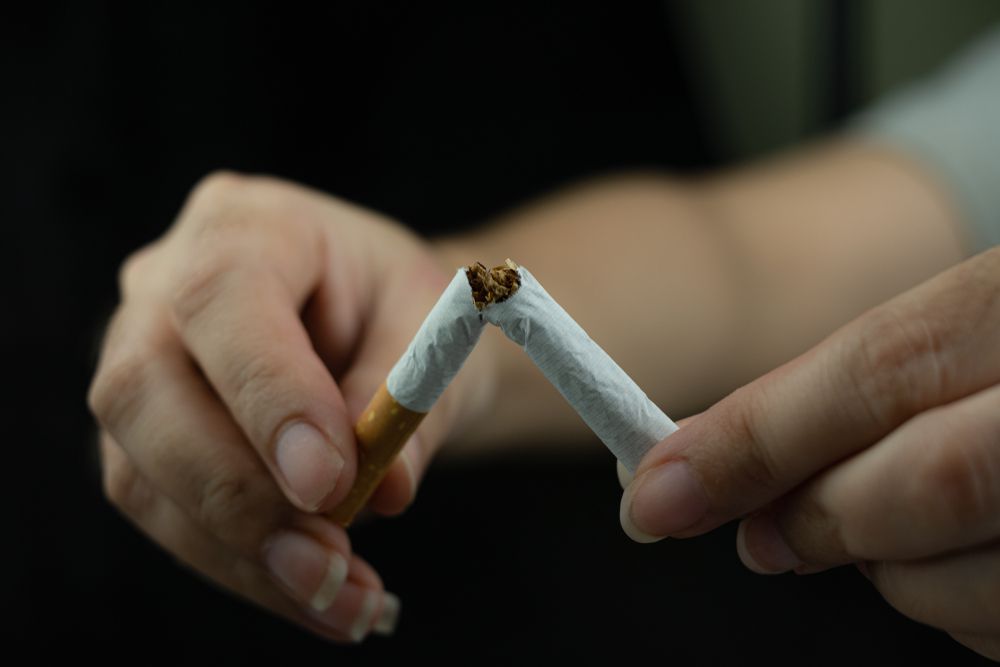The continuous use of weed can lead to the development of problem use, which is called a marijuana use disorder. Statistics show that about 30% who smoke weed or ingest it in various forms have developed some degree of dependency. Out of these percentage, many are trying to stop using the substance. This begs the question of how to quit weed. Like every other controlled drug, leaving cannabis can be tough. However, learning how to stop smoking marijuana the right way can help you kick your habit.
In recent times, weed-smoking has become so widespread. This is primarily because of the benefits that marijuana offers its users. Cannabis has been found to help with several conditions, from improving insomnia to calming anxiety to reducing depression. But, this is not to say that there are no adverse effects of the substance. People who smoke weed regularly often end up with a dependence problem. If you fall into this category, it’s time you learned how to quit weed.
Although the percentage of people that get addicted to marijuana is relatively small compared to other drugs, it is still unsettling. Today, several facilities offer addiction treatment for weed. If you are struggling with your use of marijuana and you want to stop, then you are in the right place. In this article, we will give you some proven steps to help you stop smoking. But first, let us look at the addiction levels of cannabis and how it occurs.
Why Cannabis Is So Addictive
In times past, marijuana was probably not as addictive as it is now. In the early 1990s, the average Tetrahydrocannabinol (THC) content in cannabis samples was less than 4%. Today, this number has increased in various multiples, and it is quite unsettling. It is no wonder many people are struggling with how to quit weed. Due to the newly engineered strains of weed, most samples of marijuana deliver levels of THC of around 40%. Some specimens even exceed 80%!
Over time, smoking weed with these high levels of THC will critically influence the neural functioning of the brain’s endocannabinoid system. In other words, the brain begins to rely more on marijuana and becomes less sensitive to its endocannabinoid neurotransmitters. In essence, one begins to believe that it is impossible to carry out normal activities without weed. This is the reason many people experience withdrawal symptoms when marijuana is no longer in their system.
At this stage, dependence, which is the onset of addiction, has begun. Marijuana use disorder becomes an addiction when a person cannot stop smoking or ingesting weed, even though it is adversely affecting them. According to studies, about 9% of those who use marijuana will become dependent on it. Here are some common signs of cannabis dependence.
- If you need to take increasing amounts of weed to achieve the same effect, you may be becoming dependent.
- If you continue to take marijuana for longer than you intended or than you need to, dependence is already a danger.
- Trying unsuccessfully to quit weed is a sign of addiction.
- If you have chosen weed instead of attending important social, occupation or recreational activities, you may be dependent.
- Finally, if you keep using marijuana despite incessant physical or psychological problems caused by persistent use.
If you have noticed any of the above signs in yourself, it is high time you learned how to quit weed. Read further to find out a few easy tips for quitting weed.
How to Quit Weed: Proven Tips to Help You
Marijuana may be less addictive and harmful than other substances, but dependence is still a real danger. Addiction treatment for weed can take different forms depending on the extent of dependency. However, the results stay the same – you stop smoking or using cannabis. In the next few paragraphs, we will give you some insight into how to quit weed. Here are some proven steps to stop smoking weed.
Related article: How to Stop Smoking Weed
Figure out why you want to stop
We are glad you have decided to get help for your cannabis-using habits. However, you must be able to identify the reason or reasons you want to quit. Your ‘why’ is a crucial piece of information that will anchor you. Quitting weed may not come easily.
But, your reason for stopping can be a source of inspiration and motivation for you when the going gets tough. This clarity on why you want to break your habits can help increase your chances of success.
Decide your method of approach
There are different ways you can approach addiction treatment for weed. Depending on your needs, your level of motivation and several other factors, you can then make a decision.
Remember, as long as you meet your goals, there is no perfect way to quit weed. However, learning the pros and cons of the different methods can help you make your decision. These are the different methods.
-
The ‘Cold Turkey’
This is when you just up and quit weed at once. That is, you pack up all your marijuana and other paraphernalia, you toss them, and you never look back. However, this method usually results in the highest levels of withdrawal symptoms. On the plus side, it also means that you will stop smoking faster.
-
Medical Aid
If you are worried about the intensity of withdrawal symptoms, then this may be the way to go. Note that there is no magical pill that will cure your weed dependence. However, there are some drugs that will help reduce withdrawal symptoms and cravings. We recommend speaking to a doctor about this.

-
Rehab
This approach to addiction treatment for weed is advisable for people who have been smoking joints for a very long time. If you are a long-time or heavy smoker, then you may need rehab to get the best results. However, you will need to invest a lot of time and money to get better in rehab.
Get rid of your smoking ‘gear.’
Next on how to stop smoking marijuana, get rid of your cannabis equipment. Regardless of your approach to stop smoking weed, you must get rid of every object that reminds you of marijuana.
Your cannabis stash, vapes, rolling papers, everything must go. You may either trash them or give them out, but you need to ensure that they are not within reach. This will help you prevent slip-ups during the withdrawal phase.
Change your routine
Depending on the time you used to engage in smoking weed primarily, you may need to switch up your routine. Changing your behaviours in the slightest can go a long way in helping you quit weed. For instance, if you have a habit of smoking when you wake in the morning, try going for a jog or a walk at that time.
Get a new hobby

Our next tip on how to quit weed is for you to pick a healthier habit. Often, the fastest way to get rid of a habit is to replace it with something else. This is especially vital if you use marijuana when you are bored. In the long run, hobbies will help you stay off weed. Also, you may consider revisiting old hobbies or taking up new ones. Regardless, the trick is to find something new that you genuinely enjoy.
Enlist support from loved ones
Finally, your friends and family can be an essential source of support in helping you quit weed. They can help provide distractions or even join you in engaging in healthier habits. More importantly, they can encourage you when withdrawals or cravings get tough.
In Conclusion
While some people can use cannabis without any issue, several people struggle with dependency and addiction. However, tips on how to stop smoking marijuana can only help you so much. In addition to learning how to quit weed, you need to commit to the process. Contact 1000 Islands Addiction Rehab & Treatment Centre for addiction treatment programs.
Related article: Addiction Treatment for Marijuana: Why You Need to Stop Smoking
